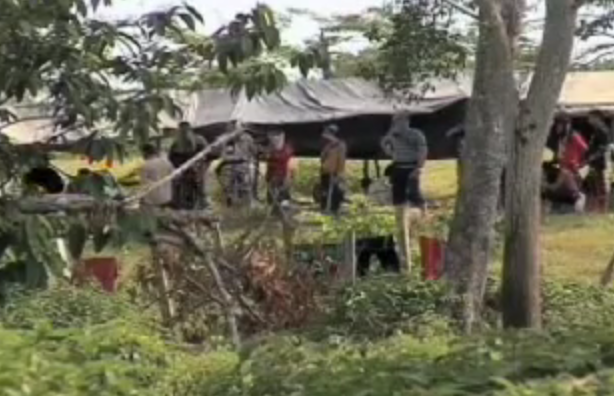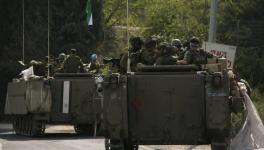The Rural General Strike and the Crisis of the Rentier Economy
Beginning today, Monday August 19, Colombia will be witnessing a national agrarian strike of the likes the country has not witnessed since the mobilizations of the mid 1980s and the mid 1990s. For three reasons, the strike marks a watershed in the country’s recent history. First, it comes as a culmination of a series of smaller strikes over the last ten months, involving thousands of peasants, workers, miners, and small farmers. Second, it involves most sectors of the agrarian economy and most of the rural population. Finally, the strike comes at a crucial juncture of the stalled peace talks.
Hundreds of organizations and movements are involved, all of which articulate one main point: the country's current economic model is generating poverty, income disparities, concentration of land properties, food insecurity, looting of natural resources, killings, displaced populations and destruction of the environment. In other words, this strike is an indicator of the gravity of the crisis that the rural economy has reached under an economic policy inherited (and enthusiastically embraced) by President Juan Manuel Santos from his predecessor, Alvaro Uribe Velez (2002-2010). This policy depends on the extraction of raw materials by multinational corporations and large agribusinesses becoming a main mode of capital accumulation. It is meant to stimulate the growth of a rentier political economy.

But instead of stimulation, it has produced disasters for a large part of Colombia's population. I have explained in my blogs as well as my academic works that this rentier-extractive model has been in operation long enough to allow us to fully assess the damages it has wrought. Case in point, the displacement of millions of Colombians was to a large extent meant to facilitate the rentier model by illegally appropriating peasant lands and offering those lands as concessions to multinational corporations and local companies. Local, foreign, and state capital have been partners in this looting process alongside the narcobourgeoisie, cattle ranchers, and speculators. This speculative frenzy has its proponents and beneficiaries in government positions as the latest scandal involving Carlos Urrutia, Colombia’s ambassador to the United States, showed. Rumors are abundant about the number of individuals within the Santos government who are capitalizing on the speculative rentier frenzy. The problem is structural.
Consequently, the confrontation between the Santos government and the rural population will continue. This strike and its political outcome will affect the current negotiations between FARC and the state.
Stay tuned.
Disclaimer: The views expressed here are the author's personal views, and do not necessarily represent the views of Newsclick
Get the latest reports & analysis with people's perspective on Protests, movements & deep analytical videos, discussions of the current affairs in your Telegram app. Subscribe to NewsClick's Telegram channel & get Real-Time updates on stories, as they get published on our website.
























